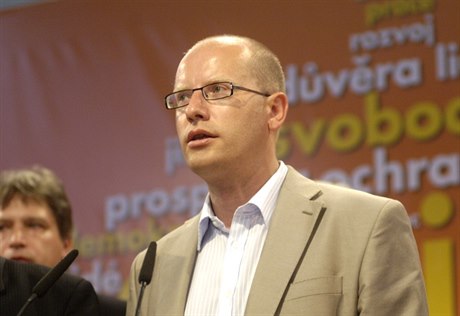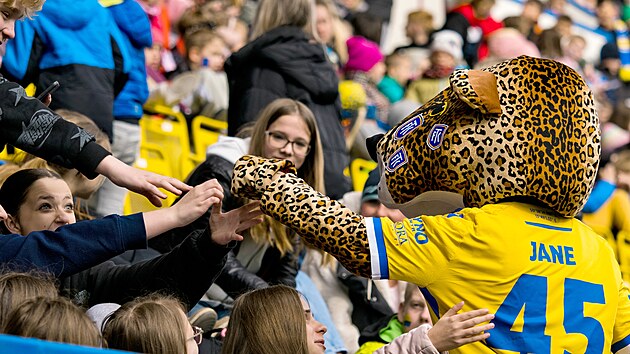Social Democrats (ČSSD) chairman Bohulsav Sobotka has said that to “unblock” the left wing in parliament he would consider circumventing a party resolution from the mid-1990s forbidding the forming of an alliance with the Communist Party of Bohemia and Moravia (KSČM) — but would stop short of forming a coalition with the largely unreformed party.
In an interview on Thursday evening with Czech public television’s Hyde Park program, the leader of the main opposition center-left party said that if ČSSD won the next parliamentary elections but fell short of an absolute majority, it would attempt to form a “program coalition.” Failing that, Sobotka said, he would look for support for a minority government from all sides, including from the KSČM.
The ČSSD two decades ago adopted a motion forbidding the party from collaborating with the Communist Party in national government, the so-called Bohumín Resolution. Sobotka said that forming a minority government with the KSČM’s support would not violate that resolution. “It’s a model that is not forbidden by any resolution from a Social Democrat party conference,” he said.
Not forbidden, apparently
‘It’s an issue which divides our voters‘Sobotka was keen to stress that his party would not form a coalition with the KSČM, which in many areas still advocates policies from the so-called Normalization period following the Soviet-led invasion of Czechoslovakia in 1968.
“It’s not the time for us to abolish the Bohumín Resolution, especially because the Communist Party has not undergone reforms it should implement and, what’s more, it’s an issue that divides our voters,” Sobotka said.
Sobotka, a former finance minister (2002–2006) elected ČSSD chairman last March, said his priority would be to implement his party’s program and would therefore consider participating in a so-called “multi-colored” coalition — an alliance with parties in the center and on the right of the Czech political spectrum.
The ČSSD has formed alliances with the largest center-right party, the Civic Democrats (ODS), in a number of regional assemblies. Such an alliance came into being in Prague at the end of 2010, where the new center-right party TOP 09 secured more seats than other parties but was kept from power by the so-called ODS–ČSSD “grand coalition.”
Grand coalition failure
‘It’s a question of finding a model for ensuring sensible and decent governing of our country in the coming years on the basis of the program of the winning party’That coalition was deeply unpopular with the Prague electorate and many suspected its main aim was to preserve the status quo in Prague City Hall, and for certain interest groups to maintain control over the allocation of public funds. The grand coalition fell apart in November 2011.
“It’s a question of finding a model for ensuring sensible and decent governing of our country in the coming years on the basis of the program of the winning party,” Sobotka said on the Hyde Park program about the prospect of forming a new coalition across ideological lines.
In the same interview, he said the ČSSD would welcome introducing a ceiling on campaign spending for all parties prior to the next parliamentary elections, adding that his party’s spending in the run up to the 2010 contest was beyond its means. He did not, however, mention a specific figure.
The ČSSD has 56 seats in the 200-seat lower house of Parliament, down from 74 it 2006. However, in the uppoer house, the Senate, the party has an absolute majority with 41 out of 81 seats.
According to a SANEP poll from early February, if parliamentary elections were held now, the Social Democrats would win with 25.5% of the vote, followed by the ODS (19.4%), TOP 09 (15%), and KSČM (14.9%). No other parties would not receive the 5% required to win a parliamentary mandate, including Public Affairs (VV), now in a coalition with the ODS and TOP 09.
No presidential candidate for now
The ČSSD leadership is due this weekend to discuss nominating one or more candidates for the presidential election scheduled for February 2013. For the first time since the formation of the Czech Republic the country’s next president will be elected directly by the people rather than by parliament.
Sobotka said, however, that his party was unlikely to definitively select a candidate before the early summer, adding it was more important to have a candidate with “Social Democratic values” than a ČSSD member.
“Of course it would be a pleasant change if the next president ... were someone who would not call for the Czech Republic to leave the European Union,” Sobotka said, referring to the euroskeptic stance of President Václav Klaus, whose second term expires in March 2013.




